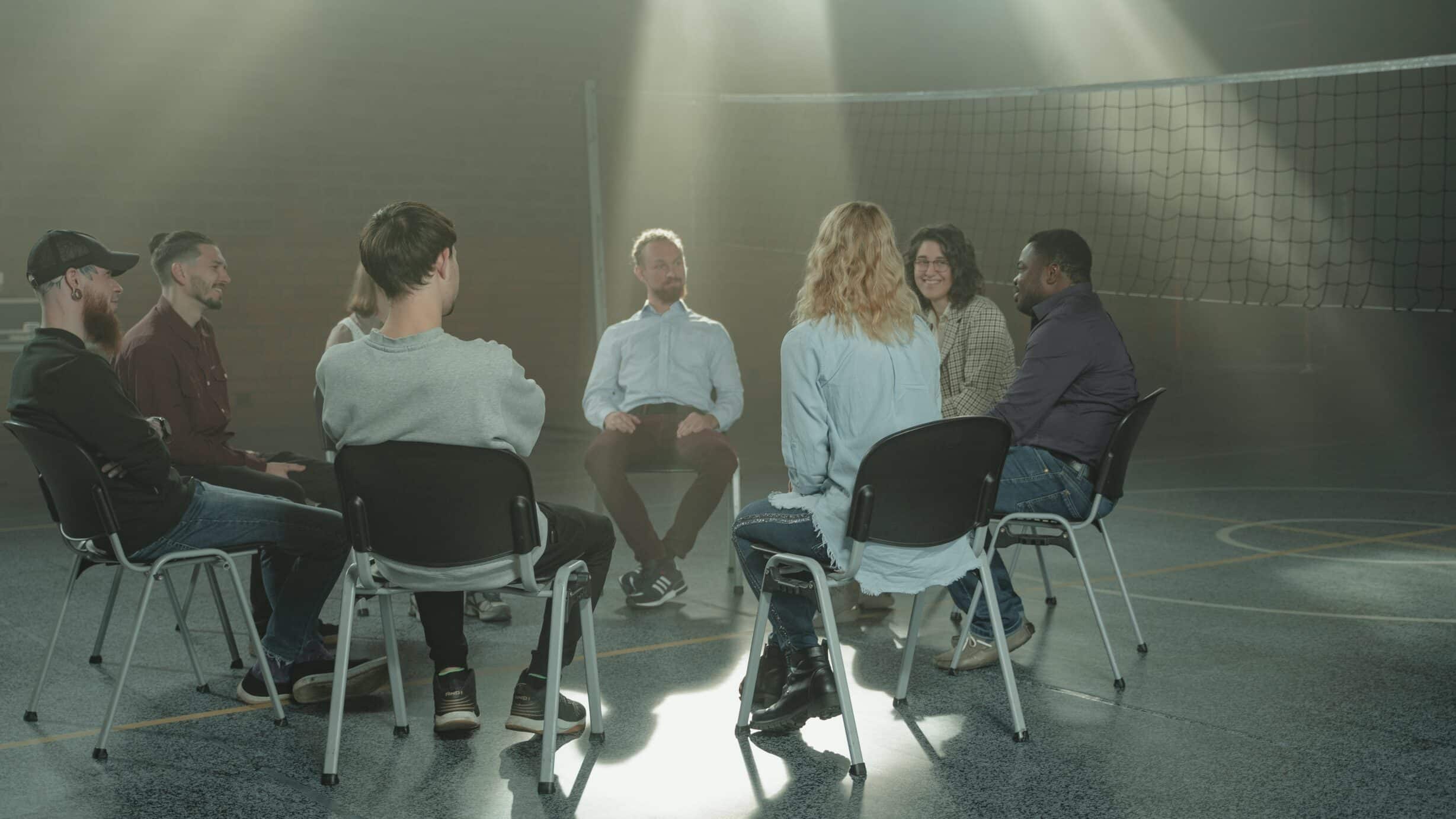Make Your Small Groups Like A.A.

Dear Discipleship-first Friends,
Continuing with our series detailing often overlooked advice on leading a church in Jesus-style disciple making – we’ve covered a lot of ground with the first four articles (if you missed any of the previous articles, just click the links below):
- Don’t Announce the Revolution
- Preach and Normalize King Jesus
- Normalize Being a Disciple of Jesus
- Normalize Conformity to the Image of Jesus as the Goal of Disciple Making
You may be thinking, “Some of that is different or hard, but I think I can handle it. I thought it would be harder than that.”
And, maybe you weren’t wrong – here is the hard part that you’ve been anticipating. Instead of looking and feeling like a classroom, small groups should look and feel more like A.A. That’s right… Alcoholics Anonymous. To truly make disciples of Jesus, people need to be loved and held accountable in a relational small group they can trust. Jesus reserved His best and deepest teachings for His small group:
With many similar parables Jesus spoke the word to [the crowd], as much as they could understand. He did not say anything to them without using a parable. But when he was alone with his own disciples, he explained everything (Mark 4:33-34).
As Jim Putman often states, “We have separated the message of Jesus from the methods of Jesus. Jesus’ methods are just as divine as His message.” Jesus’ method was to make disciples in relational small groups.
Did you know that A.A. began as the Christian discipleship program, The Oxford Group, in 1921? It was so successful at helping people change that a group of recovering alcoholics used the methodology to help other alcoholics get sober. They just dropped the Jesus part. Programs like Re:generation and Celebrate Recovery put Jesus back into the process.
Likewise, Jim Putman modeled the small groups of Real Life Ministries after A.A.:
I learned a lot about myself when dealing with my drinking problem in the late 1980s. Alcoholics Anonymous (A.A.) had it right and many churches had it wrong. I felt weak and alone, though I had given my life to Christ. Most of the Christians I knew kept to themselves. Oh, there were potlucks where a lot of small talk occurred but not a lot of sharing about failings. Sometimes there was a lot of theological banter and some gossip about the pastor’s kids, but nothing real. Maybe because they believed they had to appear holy. If anyone really knew them, the truth of who they are would come out. They’re imperfect, just like everybody else. […] We are to be with people who will tell us the truth, what we need to hear even if it isn’t what we want to hear. God says to do this daily because He knows we can get messed up in the head in a moment’s time. We need constant support. […] Unfortunately, all I found in church at the time was a place to go once a week. I had many questions, but no one to answer them. The pastor was too busy and no one else had time. A.A. became essential in my life. The church wasn’t there to help, so the secular world stepped in. Jesus modeled effective discipleship for us through building relationships. He could call His disciples on the carpet when they got it wrong. He encouraged them and provided a safe place where they could voice their shortcomings and ask for help. He had a small group of men He could really know and thus keep accountable. Once again, real discipleship happens in small groups.[i]
You can learn Real Life Ministries’ small group disciple-making process from the Relational Discipleship Network.
Putman wasn’t the only one who realized that A.A. was a successful model of disciple making. Dallas Willard wrote:
Historically, the A.A. program was closely aligned with the church and Christian traditions, and now it has much to give back to a church that has largely lost its grip on spiritual formation as a standard path of Christian life. Any successful plan for spiritual formation, whether for the individual or group, will in fact be significantly similar to the Alcoholics Anonymous program. There can be no doubt that the A.A. program originated and gained its power from Christian sources, to meet needs that Christian institutions at the time should have been meeting but were not. It works in terms of essential structures of the human self, revealed by God through his people.[ii]
John Mark Comer reflected on Willard writing this and added:
It’s highly likely that any working model of spiritual formation will bear all sorts of resemblance to A.A., with its three elements of (1) radical self-awareness, honesty, and confession, (2) total surrender to God’s power, and (3) a loving, tight-knit community to both love you and hold you accountable to becoming your true self. Take away any one of these tripart elements, and the proverbial stool will fall.[iii]
Obviously, your standard small group with mixed genders should not be as confessional as A.A. However, out of your small groups, other accountability groups, such as same-gender accountability groups, micro-groups, and one-on-one groups such as Small Circle should be formed to fill this purpose. A quick Google search will reveal that there are many such groups out there. But whatever model you choose, it must hold people accountable for being conformed to the image of Jesus.
I highly recommend beginning the process in your church by taking the staff or elders through a structured process such as Re:generation or Celebrate Recovery. Neither of these requires you to have an addiction to go through the process. What they will do is acclimate your team to what a relational disciple making group should feel like. Then, take that experience and introduce it into the rest of the small groups in your church.
I would also recommend reading Avery Willis’ Truth That Sticks: How to Communicate Velcro Truth in a Teflon World to learn how to lead a group using the storying method. The majority of adults are functionally illiterate and will learn more orally than they will from studying a book. Storying also creates a conversational atmosphere in your small groups. Again, you can learn this method from the Relational Discipleship Network.
As previously stated, don’t start with the whole church. If you are the lead minister/pastor, start with the elders or staff. Start with a group of people who have taken hold of the previous steps and want to know more. Start with just one group. Then, let the people who get it spark a flame that spreads throughout the church.
[i] Putman, Jim. Church Is a Team Sport: A Championship Strategy for Doing Ministry Together. Baker Publishing Group.
[ii] Willard, Dallas. Renovation of the Heart: Putting on the Character of Christ. The Navigators.
[iii] Comer, John Mark. Practicing the Way: Be with Jesus. Become like him. Do as he did. The Crown Publishing Group.
If you have enjoyed reading this, please consider joining our email list!











